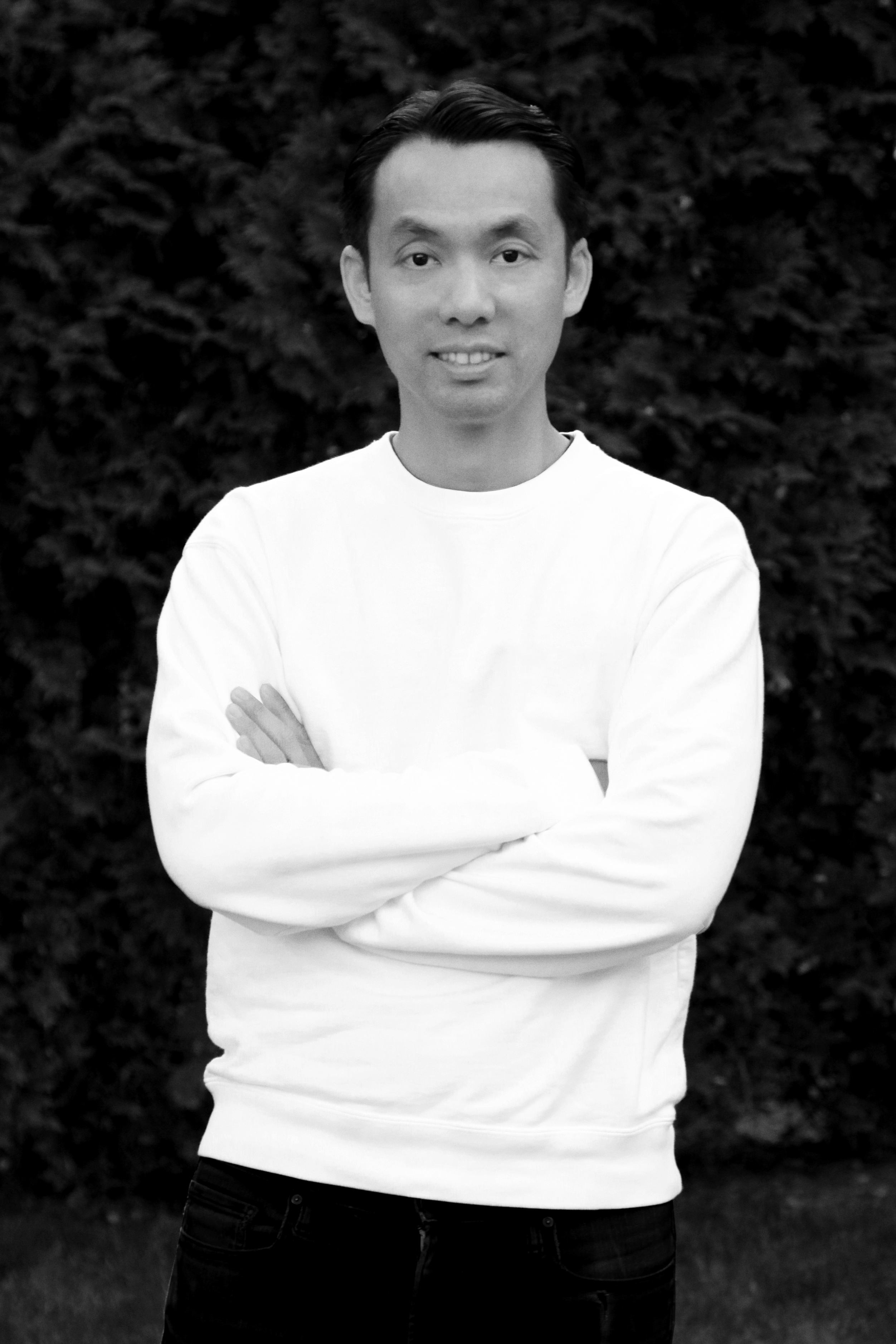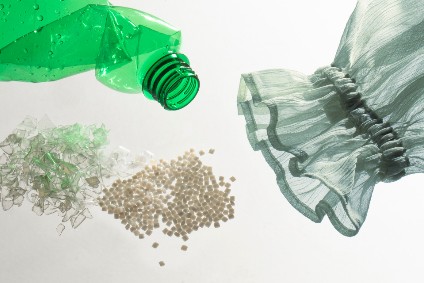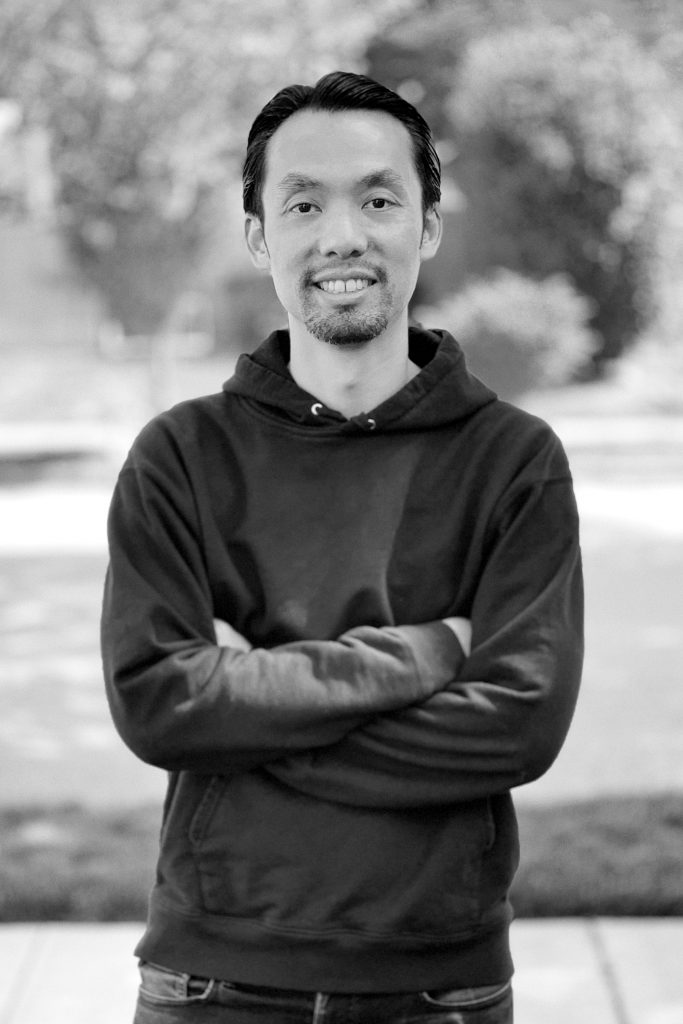Alan Mak on Progress Over Paralysis
May 17, 2021
Athena Burgueno


Alan Mak is Co-Founder and CEO of Version Tomorrow and Managing Partner of CFDA award-winning fashion brand Public School. With nearly 20 years in the fashion industry, Mak is currently transforming supply chains and pushing boundaries in material innovation, sustainability, and circularity within the fashion industry.
In recognition of Asian American Pacific Islander Heritage Month, Mak shares his professional journey and advice for global fashion brands.
In your previous career, you were an Equity Research Analyst. What inspired or motivated you to transition to fashion?
I’ve actually always been interested in fashion. As a kid growing up, I dreamed about being a fashion photographer. I wanted to be the next Herb Ritts. At the same time though, the practical Asian side of me felt that wasn’t the best choice, so I followed a more typical path and became an Equity Research Analyst. Here, I covered the retail and the nascent e-commerce sectors.
In between that and the fashion industry, I had a detour doing Competitive Intelligence in the Enterprise Software sector since deep down, I’m a geek at heart. It was there that I fell in love with the idea of a product cycle; one where you concept an idea, develop it, test it, build it, and ultimately market and sell it. As we know, there is no other industry that offers the frequency of product cycle like the fashion industry, so transitioning into fashion was a pretty natural fit.
You, Dao-Yi [Chow] and Maxwell [Osborne] participated in the CFDA + Lexus Fashion Initiative program. How has Version Tomorrow evolved since then?
Since our residency in the CFDA + Lexus Fashion Initiative, we’ve taken Version Tomorrow from an idea into a fully functioning platform where we enable brands and creators of all kinds to be able to make sustainable merch without any of the R&D and heavy lifting. We went through 2+ years of our own R&D, which included many iterations of fabrication, fit, and construction in order to develop an ultra-premium in-stock “blanks” program that is leaps and bounds of higher quality and more environmentally responsible than anything else out there. This platform enables brands to make their quick strike programs and merch drops while doing it in a more environmentally responsible way, all while upping their quality too.
Even more exciting, we’ve extended our platform to include full-package development and production where we leverage our unique fabrication, our certifications and lower impact supply chain to make full capsules and programs for brands to their spec, color and fit. Most recently, we powered Kith’s Earth Day drop, which featured a multi-piece capsule in a variety of silhouettes and colors. We have many more on the way with a bunch of super notable brands – we’re really excited to story tell with them.
How has your role changed from Public School to Version Tomorrow?
I still continue to do both, but admittedly, a lot of my time is occupied by Version Tomorrow. One of the wonderful things about Version Tomorrow is that I’m able to think about the product through a tech/consumer product lens, where it’s about making iterative improvements – with each new batch comes refinement and not just newness as has historically been the case in fashion. Each time that we make new goods, there are incremental micro-improvements. Sometimes it’s small tweaks to fit, other times it’s refining construction or perfecting the weights or hand of our fabrications. That said, my actual role is very similar in that I oversee revenue generation and product innovation. I also still continue to focus on building partnerships and interesting collaborations for both.
What solution(s) are you hoping to offer the industry through VT?
When we created Version Tomorrow, we originally did it strictly for ourselves. We wanted to create a better “blank” for Public School; one that was of better quality while also being environmentally responsible. What we realized though was that in order to have a real impact, we couldn’t keep this to ourselves and decided to open it up as a brand agnostic platform where any brand or creator could make “sustainable” merch in a turn-key way without having to do any of the R&D and building a whole new supply chain.
Through many conversations with brands. What we were seeing was that brands who had incumbent and legacy supply chains were finding it difficult to disrupt and change those supply chains into ones that were sustainable due to a lack of resources and the inherent risk that it would introduce to their business processes.
Rather than trying to figure it out on their own and diverting their resources to this effort, brands can simply hand it off to us since we’ve already done it. Doing so means that they don’t have to manage two separate supply chains in parallel, eliminating the issue of double the resources and adding a ton of production risk – risks to quality, delivery, etc. It’s a completely different discipline and it’s not easy. We know this because we went through the same thing – this was us!
With Version Tomorrow, we solve a real pain point for brands. They don’t have to do the R&D, innovate on the materials side, figure out the certifications, etc. We’ve already done that and have opened our supply chain to allow them to leverage all the work that we’ve done. We’ve reduced the friction for brands to introduce sustainable products to their mix. By partnering with us, it frees these creators to do what they do best: innovate on design and marketing and not have to be bogged down spending precious resources on building a sustainable supply chain.
For companies where apparel isn’t their core but where merch is a part of their mix – such as nextgen digital native consumer, beauty, health & wellness, etc. companies – Version Tomorrow is often their first touch point to apparel. For these companies, they are building their brands ground up with sustainability as core to their business and they’re looking for suppliers like us who have credibility in the fashion space while making it easy for them to make merch that is of the highest quality while being environmentally responsible.
Version Tomorrow recently collaborated with FUTUREVVORLD. What meaningful environmental considerations were made in the process?
Our collaboration with FUTUREVVORLD was a call to action to the streetwear community to think beyond the token, one day a year greenwashed Earth Day drops. The streetwear world is known for its weekly drops. Oftentimes, these drops are made using irresponsibly-sourced blanks made from conventional GMO cotton and petroleum based synthetics, aka plastic. For Earth Day though, many of these brands put out capsules using more “ethical” materials and planted some trees, and that’s great, but it goes back to the question: what about the other 364 days? For the most part, those 364 days are more of the same crappy, irresponsibly-made goods. We don’t think it needs to be that way and we wanted to raise awareness within the community as a whole – for both brands and consumers – that we need to start thinking more deeply about what our impact on the planet is.
What are your long-term goals VT?
As I mentioned earlier, Version Tomorrow is a brand agnostic platform. Our long-term goal is to be a full-stack circular solution for brands and creators to make more environmentally responsible goods.
What advice do you have for designers who are reevaluating their brands environmental impact?
The best advice is to understand that the immediate goal is to just start somewhere. It almost doesn’t matter where, as progress is better than paralysis. It’s far better for many brands to be doing things imperfectly rather than waiting until you’ve cracked the nut on how to do things perfectly. Inevitably though, there is no perfect and if you wait until you think you’ve achieved perfection, you’ve wasted all that time that you could have been making an incremental impact.
All this said, one of the most obvious things to do is to have a really deep understanding of your materials. Are you using recycled, upcycled or deadstock materials? What happens to your goods at the end of their life? Can those goods be recycled? If not, why not?

